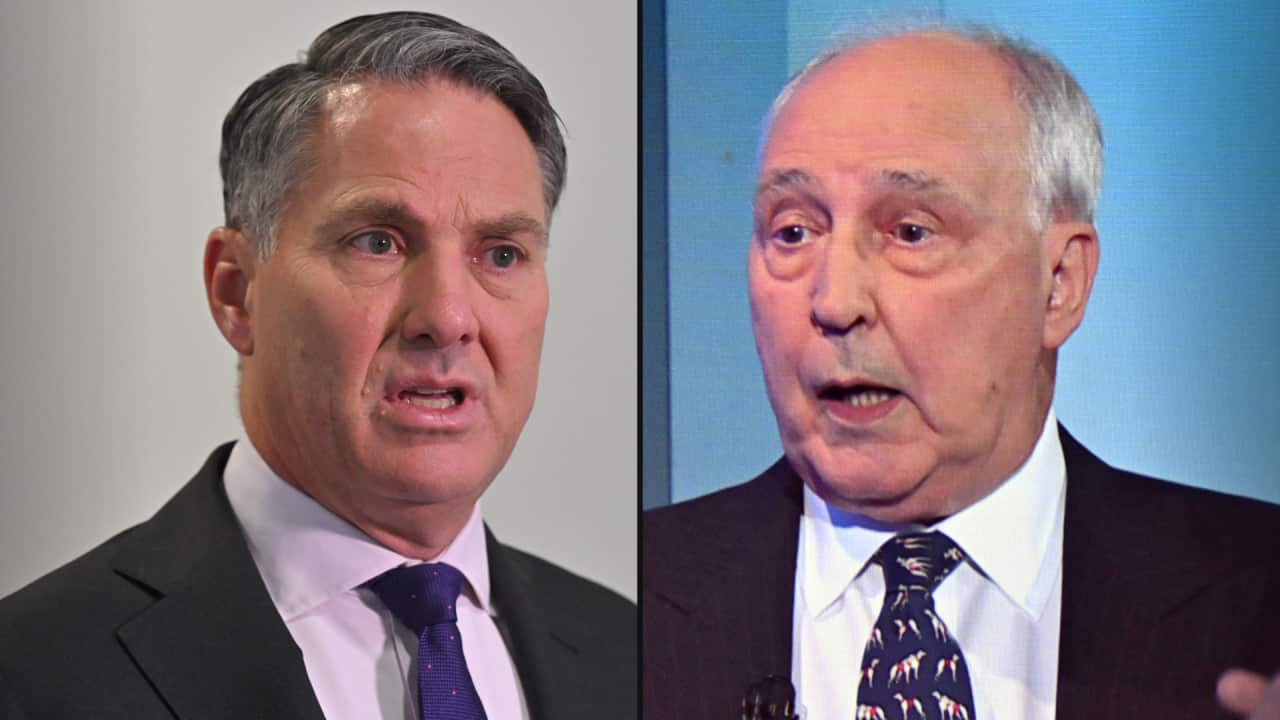Deputy prime minster Richard Marles says Paul Keating's criticism of the AUKUS amounts to an unfair characterisation, as he pledged the security agreement would not turn Australia into a nuclear waste dumping ground.
Former prime minister Keating — a between — appeared on ABC's 7.30 program on Thursday night and claimed Australia risked losing its autonomy by being part of AUKUS.
"AUKUS is really about, in American terms, the military control of Australia. I mean what's happened? Our policy is likely to turn Australia into the 51st state of the United States," he said.
"The only threat likely to come for us is because we have an aggressive ally because of AUKUS."
But Marles — also the defence minister — appeared on ABC News Breakfast on Friday and said that was "not a fair characterisation" of what the federal government was doing.
He said Australia had gone through an extensive process in assessing the security situation in the region.
"It’s a line, but it’s nothing more than that," Marles said of Keating's remark.
Marles added that he believed none of what Keating had said was news because the former prime minister had previously made his opposition clearly known.
"I don't agree with it, but I absolutely acknowledge that as a former prime minister, as a great Labor prime minister, Paul Keating has a right to express his views in the public discourse, and that's what he's doing," Marles told ABC News Breakfast.
As part of the AUKUS agreement, Australia will buy three Virginia-class vessels from the US before Australian-built nuclear submarines start operating.
The $368 billion plan will bring eight nuclear-powered subs into service by the 2050s.
The terms of the original March 2023 deal allowed "for the exchange of naval nuclear propulsion information".
But Australia has now signed an update that formally permits it to take in nuclear material for the procurement of nuclear submarines.
Asked about what critics have labelled a "radioactive waste loophole", Marles said there was "no prospect" of nuclear waste coming to Australia.
"We will be handling our own nuclear waste, which is what we announced in March of last year," Marles told ABC News Breakfast.
"What we signed earlier this week was the legal underpinning, the treaty level agreement, which underpins the AUKUS arrangements that we announced in March of last year."
With the Australian Associated Press.

